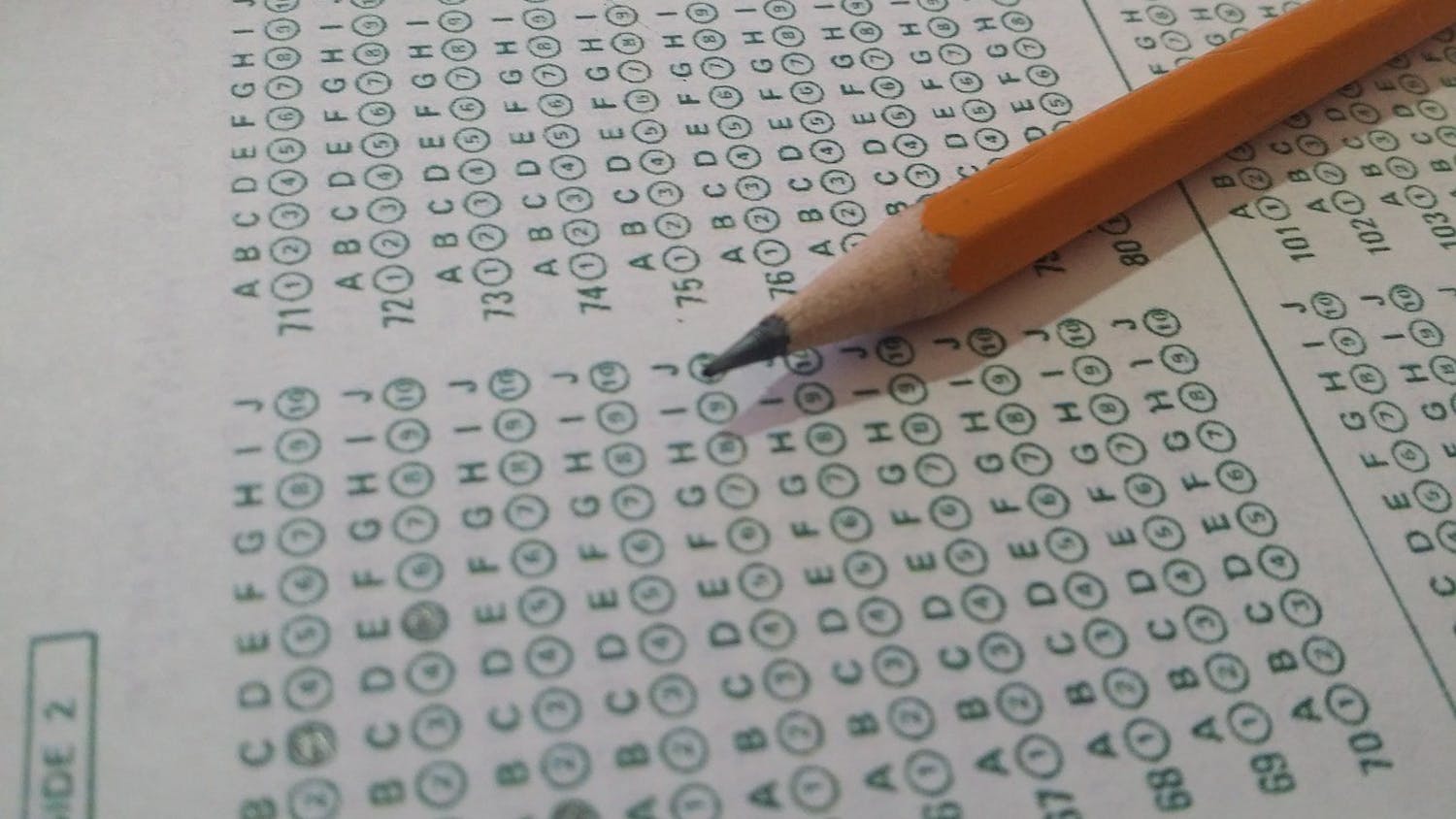In order to stay eligible for her disability insurance, Heidi Wenner can’t work — but she can learn. And due to state law, she can audit any UW System course for free.
When adults of any age register for disability insurance, they are often unable to seek employment as it would remove access to their insurance. Often separated from the workforce some adults with disabilities look to other opportunities like volunteering or, for others, furthering their education.
“It is a wonderful experience no matter if you want to just come sit in the class in the back or if you want to try and participate,” she said. “I don’t know what I would be doing right now if I didn’t have this to do, because you can only volunteer so much.”
Wenner added without this law she could not afford to take these courses.
“If they were to change the law I would literally be heartbroken… I think it is something that does so much good,” she said.
A long-standing state law grants any Wisconsin resident who receives disability insurance the chance to audit state university courses free of charge, offering a chance for individuals to continue learning and further incorporate themselves in the community.
“Sadly many of the people who do end up on disability have limited resources,” said Martin Rouse, director of the campus facility that processes these guest auditors. “This is an opportunity for people to continue with their education, find a way to spend time and connect with other people.”
Individual benefits
UW-Madison has 58 guest auditors currently enrolled that fall under the Supplemental Security Income/Social Security Disability Income waiver, and that number has been growing consistently over the years.
“[Auditing is] passive learning — you’re enrolled but you’re not taking the class for credit, though you might do the work yourself, it’s kind of up to you,” Rouse clarified.
Wenner found out about the guest auditors program back in 2012 and has taken one class a semester since then.
While she shared at first it was intimidating to go back to school, she is currently happily enrolled in her 15th course at UW-Madison.
“The nice thing when you’re auditing, you can either just sit there and listen and take it all in or you can be as active as you want,” she said. ”I like to take notes and get as close as I can to pretend [to be] taking [the course].”
Any course in the catalog is fair game — the only obstacle to taking a class is if it’s at capacity, as auditors fill a course’s empty seats, Rouse explained.
The law and program not only provides an opportunity to expand one’s education, but also can break down barriers and differences between someone with a disability and someone without one.
“I could sit and discuss Shakespeare with you and for that little time my disability isn’t an issue,” Wenner said.
One popular course for SSI/SSDI-waived auditors is an adapted fitness course taught by kinesiology and adapted fitness faculty associate Tim Gattenby. His course is different because it allows typical students to work and connect with students with disabilities.
“[His course] is helping our UW-Madison students learn how to take care of people who have disabilities so it’s really a win-win for the community” Rouse said about Gattenby’s program.
Gattenby’s program — which began in 1986 — has the highest number of auditors with disabilities.
“For two and a half decades now, we have filled every single class with guest auditors. [We] help train students to be more adept at knowing what is going on in the real world” he said.
And the law does not only apply to those who were born with a disability, but to individuals who acquired a disability throughout the course of their life, allowing programs like Gattenby’s to help anyone with a disability succeed.
“I would say success is coming back and finding that the program was helping you with whatever you were trying to do,” Gattenby said.
For these people, Rouse said the program can serve as a transition or trial period for people coming back from an illness, people interested in learning or just to pursue one’s interests.
“Say you were in an accident and want to get back to your education but you’re not ready to get back into full-time classwork. You could try auditing just to see what it would be like — like, ‘Can I get to class everyday, follow the lectures, etc.,’” Rouse said. “[It’s] sort of like a bridge program.”
Potential for progress
Gattenby said his adaptive fitness program is dedicated to helping people with diverse disabilities, both through programming and by creating new adaptive equipment.
“[These events and equipment are] new aspects that have promoted more opportunities for people with disabilities but also trained other people to know that it is possible,” he said.
While this law can benefit the UW System and the lives of many individuals, there remains room for improvement.
Both Rouse and Gattenby agreed such a great opportunity deserves to be publicized more in order to reach a greater number of potential students.
“I think we could do a better job [of promoting] at other places and other entities. There’s communities that could have similar opportunities [and] that could only benefit everybody,” Gattenby said.
Even so, being accessible to everyone can be difficult, especially since there are many ways to qualify for disability — and sometimes the type of course one wants to take may be limited by their disability, Rouse said.
The university’s McBurney Disability Resource Center works with Special Student Services to try to accommodate these individuals, but there is an understanding those who are paying for the class and doing for-credit courses have the rights first to these resources.
And although becoming a guest auditor is rather straightforward — only requiring proof of state residency and SSI/SSDI status — Rouse added that another potential barrier toward greater inclusion is sometimes folks can have a hard time proving residency if they aren’t driving or paying taxes, which isn’t uncommon among some people with disabilities.
While Wenner was able to take courses without many issues, she did share she wished she could participate fully in the classes — including discussion sections versus just lectures.
“It’d be nice if we were offered a discussion section, but I realize they don’t because you’re not paying for the class,” she said.
Considerations for the community
Rouse added laws like this are important for able-bodied and individuals with disabilities alike to consider.
“I was at a talk recently by a fellow from Milwaukee who became disabled due to cancer and he used the phrase ‘all of us are temporarily abled-bodied people,’” Rouse said. “We are all one accident away from becoming disabled ourselves, so I thought that was a nice phrase to remind us.”
Whether someone is born with disabilities or becomes disabled throughout their life, every person is given the chance to achieve new heights in this program.
“Every client who comes in here and happens to be a guest auditor, to me, [is] an athlete, a celebrity, and they are a tremendous bonus to our community and to our student staff,” Gattenby said.
Having a disability can make life more challenging in many ways but Wenner clarified opportunities like auditing can be a silver lining.
“When you’re on disability, you are used to everything being difficult,” Wenner said, “This program gives you an opportunity to actually have something in your life that’s positive. If I get nothing else across to you, the reason I’m doing it is so that someone else can hear that and decide to take it.”






